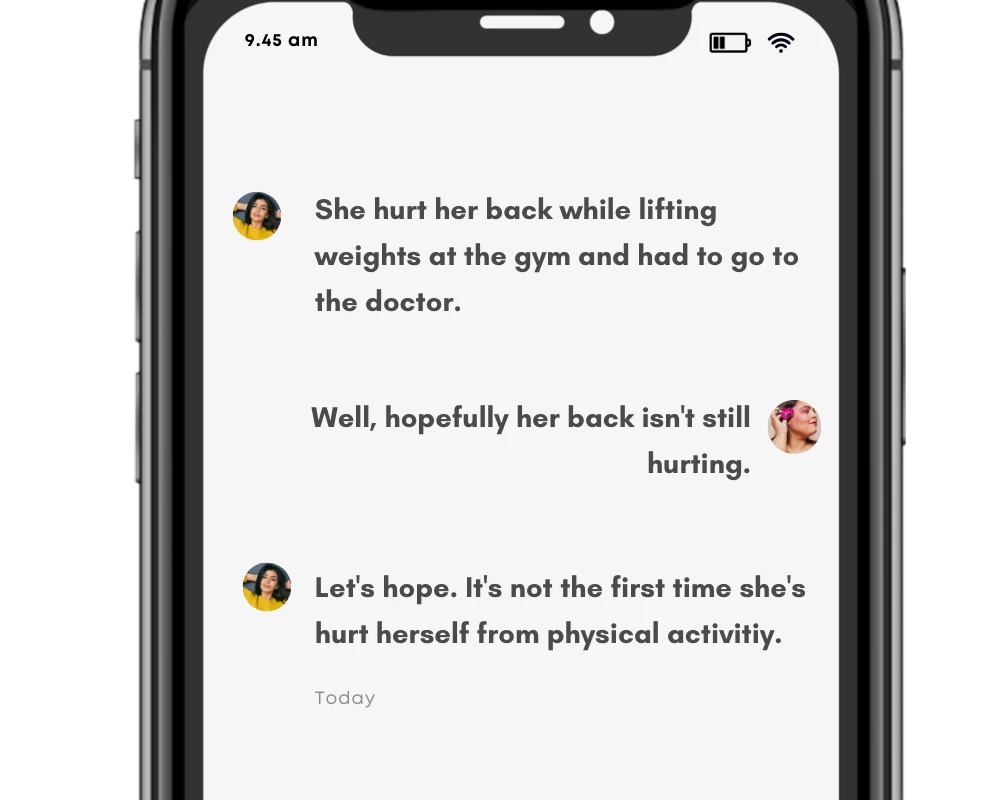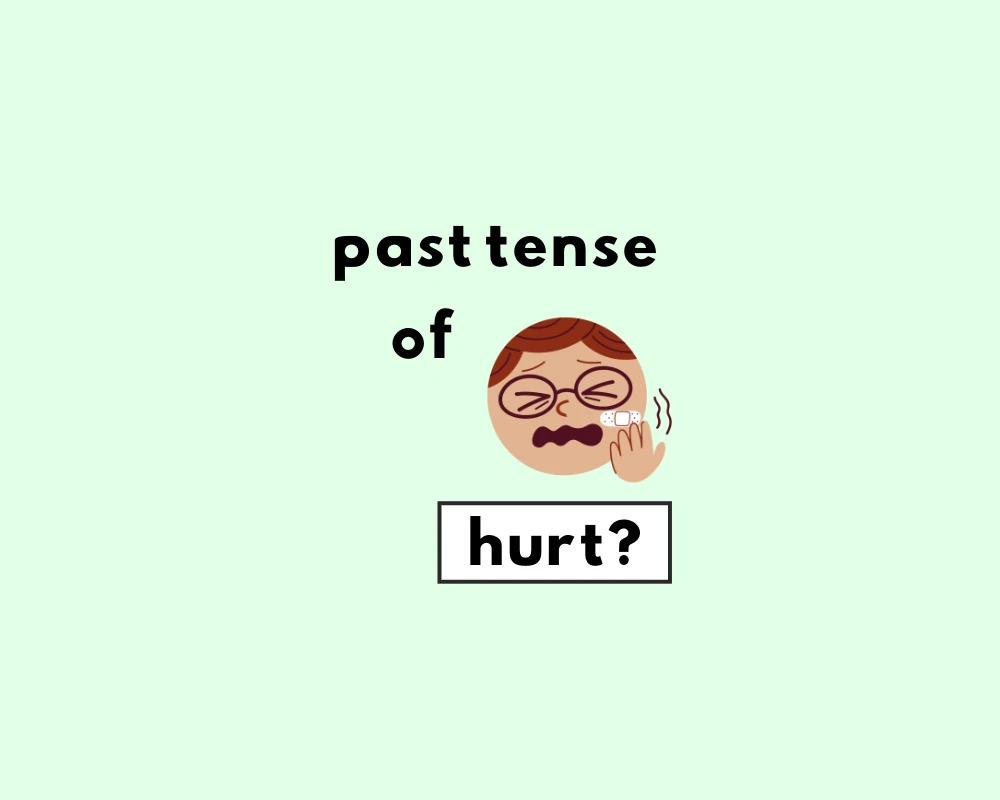
Contents
Toggle
What’s the past tense of hurt?
Did you know that some verbs show no change between the present tense and past? These are tricky verbs that look the same whether they depict the past or present. Hurt is one of those irregular verbs that appears the same in its present tense and past tense forms.
- The present tense, past tense and past participle verb forms of hurt are all hurt.
- The verb hurt is irregular since its past verb conjugations do not end in –ed.
Verb tenses of hurt
Let’s define the topic first. The verb hurt, as defined by Collins Dictionary, “If you hurt yourself or hurt a part of your body, you feel pain because you have injured yourself”.
| present | past | future | |
| simple | I hurt | I hurt | I will hurt |
| continuous | I am hurting | I was hurting | I will be hurting |
| perfect | I have hurt | I had hurt | I will have hurt |
| perfect continuous | I have been hurting | I had been hurting | I will have been hurting |
1. To hurt is in the present tense: His comrades asked him if he was hurt.
2. Hurt is the simple past: The sudden glare hurt his eyes.
3. Hurt is also the past participle: He had hurt his back in an accident.
Past tense vs. past participle of hurt
I hurt my back while carrying heavy boxes up the stairs. (Past simple)
I had hurt my back while carrying heavy boxes up the stairs. (Past perfect)
I had been hurting my back while carrying heavy boxes up the stairs. (Past perfect continuous)
The past perfect and past perfect continuous require auxiliaries/helper verbs, such as had and had been, respectively. The past simple tense doesn’t require the use of auxiliary verbs. What distinguishes the simple past tense from the past perfect is that the latter emphasizes the correct order of past actions (i.e., which past action happened first, before another past action or a series of actions).
The past perfect continuous is formed by pairing had + been + [past participle verb form]. We use this tense when we want to convey that an action was ongoing in the past for a period of time, and continued up until another point, also in the past.
Verbs with one present and past tense
| base verb | past tense | past participle |
| hurt | hurt | hurt |
| burst | burst | burst |
| bet | bet | bet |
| shut | shut | sunk |
| hit | hit | hit |
| set | set | set |
Examples of the verb hurt in present tense
1. His collar bone only hurt when he lifted his arm.
2. My back still hurts.
3. You’re hurting my arm! (present participle)
4. My tooth still hurts me.
5. Be careful with that knife or you could hurt yourself.
Examples of hurt in the past tense:
1. His comrades asked him if he was hurt.
2. The blow to his pride hurt most.
3. I hurt my back while carrying a heavy box up the stairs.
4. She was badly hurt in a car accident.
5. The sudden glare hurt his eyes.
Examples of the verb hurt as a participle:
1. Yasin had seriously hurt himself while trying to escape from the police.
2. They were dazed but did not seem to be badly hurt.
3. Tom had a hurt look on his face.
4. I had hurt my arm from falling down the stairs.
5. He had badly hurt his leg from playing basketball.
Synonyms of hurt
- injured
- damaged
- cut
- wound
- impaired
- sore
- ache
Origin of the verb hurt
From etymology online on hurt (v.):
c. 1200, “to injure, wound” (the body, feelings, reputation, etc.), also “to stumble (into), bump into; charge against, rush, crash into; knock (things) together,” from Old French hurter “to ram, strike, collide with” (Modern French heurter), a word of uncertain origin.
Other commonly confused verb tenses
- What’s the past tense of spread?
- What’s the past tense of lead?
- What’s the past tense of choose?
- What’s the past tense of fly?
- What’s the past tense of lay?
- What’s the past tense of drive?
- What’s the past tense of draw?
Learn more about grammar
- What are regular and irregular verbs?
- Transitive and intransitive verbs?
- What are verbs?
- What’re personal pronouns?
- What’s the difference between they’re, their, and there?
- Whose vs who’s?
Sources
- Most material © 2005, 1997, 1991 by Penguin Random House LLC. Modified entries © 2019 by Penguin Random House LLC and HarperCollins Publishers Ltd
- Harper, Douglas. “Etymology of hurt.” Online Etymology Dictionary, https://www.etymonline.com/word/hurt. Accessed 21 February, 2023.










